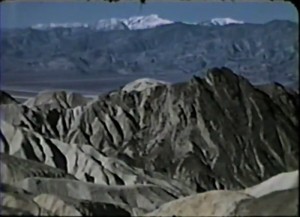
Kodachrome travelogue of Death Valley, California.
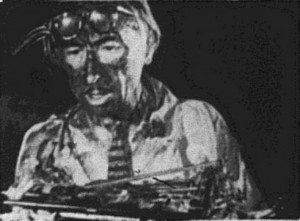
"What happens when a modern gentleman of advancing years advertises for a mail-order bride and tries to answer the applicant of his choice? Der Brief, (The Letter), an excruciatingly funny farce by Dr. Oscar Wurmboeck, gives us one answer to this problem, as our shy but determined hero is confronted at every turn by confusion and frustration. Everything happens - the ink spills, the fountain pen leaks, the mechanical pencil won't hold leads, the wooden ones won't sharpen, and the typewriter refuses to type - to deter our man from his course. Competent camera work, incisive direction and crisp editing serve to point up the brilliant and appealing portrayal of the unfortunate lover by Rudy Rattinger, so that Der Brief builds quickly and smoothly from laughter to hysterics. Here is pure farce in the old tradition. It is nice to welcome it back to the filmic fold after too long an absence" PSA Journal, Jan. 1955, 50.
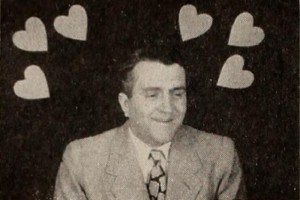
"Staria Zimmerman, that charming Milwaukee minx who made her big time bow in The Boss Comes to Dinner, a 1944 Ten Best winner, has done it again in The Dizzy Top. As the impish daughter of a winsome but widowed mother, she pulls the strings in this "merryonette" show which maneuver her pretty parent into the arms of a new and handsome husband. The quite willing victim of these arch designs is, in the film, the proprietor of a swank hat shop, and it is in this bright locale that the majority of the action takes place. Patricia and Ryne Zimmerman — the producers and supporting players — have a sharp and genuine sense of farce comedy. Their lighthearted plot dances forward as gaily as the suave settings they have contrived for it. Their incidents are antic in their absurdity, their timing crisp and delicately controlled. These qualities are, to be sure, aided immeasurably by Mistress Staria, who carries off each new comic conceit with impudent but charming assurance. Mr. Zimmerman's technical execution in their latest film leaves little to be desired in competence and imagination. There is, to a heightened degree, the same warmth and brilliance in his lighting which marked The Boss. His camera viewpoints are effective and varied, cutting one into the next with precision and pace. Show pieces of cinematic imagination enrich the production, like sugar plums in a Christmas pudding. The Dizzy Top, the Zimmerman's first 16mm. effort, is a handsome step forward along their chosen course of lighthearted comedy." Movie Makers, Dec. 1946, 486.
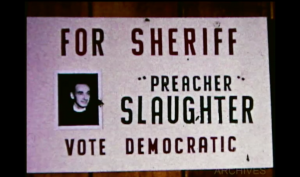
A husband and wife hold different opinions about who is to become Sheriff. The wife roots for the Democratic candidate "Preacher" Slaughter, while the husband wants to re-elect Republican candidate Sheriff Carver. Both parties bribe the husband and wife for their absentee ballot. notes from CFA
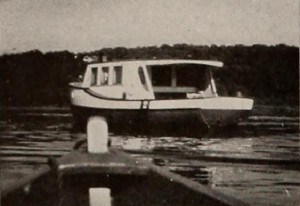
"In spite of the almost insurmountable difficulties in using feet to portray much of the action and most of the emotion in a movie, E. H. Sparks has managed to make Doghouse Blues completely comprehensible. A delightful farce of a bibulous fisherman, the story makes judicious use of the angler's big toe to denote thirst, hunger and any other emotion which might master a man on a solo weekend. Colorful scenes of inlets and bays, as well as attractive sequences of fishing craft, imbue the film with a flavor of authenticity. In satiric repetition, his indignant wife trails the tippling angler to the secluded spot where his boat rides at anchor, there to find him "taking the long count." A rude awakening for the errant husband and an eminently suitable final scene close the picture." Movie Makers, Dec. 1946, 471.
"Electra, 400 ft., 16mm., produced by Clyde Hammond, is a picturization of that Greek drama. Its most novel quality is the evidence of an intelligent search for the best motion picture treatment to present an accurate film version of the story. A series of tableau like sequences were finally used with much better results than if the plot had been adapted and scenarized in the customary manner. Certainly this film version is much truer to the original than would otherwise have been possible. Not being able to erect the complicated sets that would seem necessary, Mr. Hammond used flat gray walls, producing the suggestion of ancient Greek palaces and dwellings with "props," costumes and occasional wall ornamentation. The photographic quality is uniformly good throughout and, one sequence has very good double exposures." Movie Makers, Dec. 1930, 787-788.
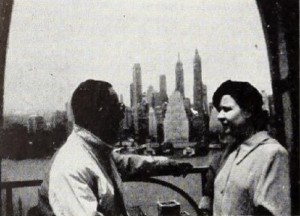
"There have been in the past, and will be in the future, a number of fine amateur films portraying the great moment of marriage, the ecstatic happiness of the honeymoon. But these films have featured, by and large, the young in age those blythe favorites of the Gods of Love with whom no fervor can seem foolish, no endearment an awkward jest. Not so in From This Day Forward. The protagonists here are people of adult experience and mature mind. But though no longer young in years, they are superbly and inseparably young in spirit. This quality, as well as good taste and graciousness — which are overtones more often missing with the young — illumines each charming foot of From This Day Forward. Othon Goetz enhances this spirituality in every phase of his production. His impeccable camera work seems to glow — where another's would merely sparkle. His compositions are so inevitable as to seem effortless, while his editing adds pace to an already attractive picture." Movie Makers, Dec. 1951, 410.
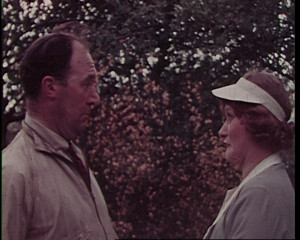
A short comedy about a couple who are unable to decide on a sporting activity to do together.
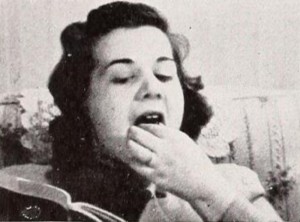
"In Glamour vs. Calories, C. J. Carbonaro has again turned to light comedy with a story of a wife who suspects her husband's infidelity because of her mounting avoirdupois. Excellent directorial touches are found in the scenes that would tend to corroborate her misgivings, especially in those of the gossip mongers. Many fine closeups that "plant" the suspicions contribute to the gaiety of the film, such as when the wife stoops to pick up some papers her husband has unsuspectingly dropped, only to have the seam of her dress rip from the strain. The film has interesting camera viewpoints and intelligent use of dissolves and double exposure to point up the plot. A word must be said for Mrs. Carbonaro's fine work as assistant cameraman, made necessary by the fact that her husband played one of the major roles in addition to being producer of the film, and for the high key titles with their amusing sketches. And we might add a salute to the good sportsmanship of the girl who played Mrs. Tubby, who finds a happy ending." Movie Makers, Dec. 1944, 494.
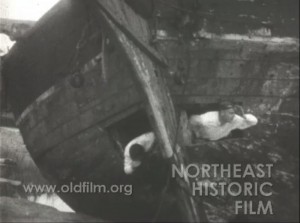
"Amateur stage play directed by Roger Clapp and starring Dorothy Stebbins." Northeast Historic Film.
Total Pages: 6